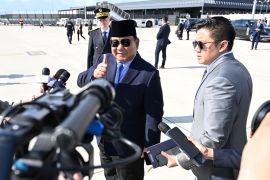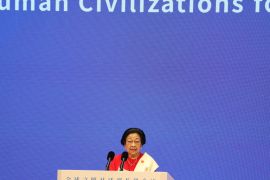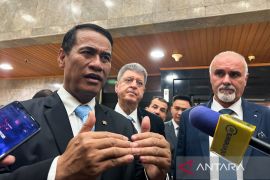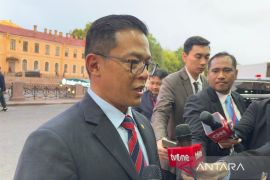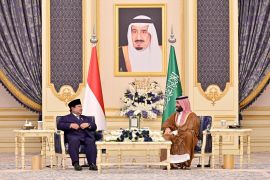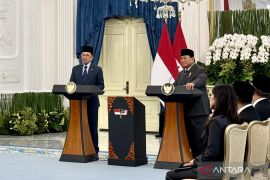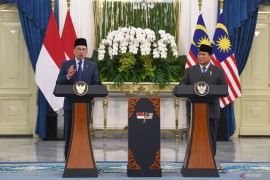"I hope that this trip of the Security Council can take place very soon so that the Security Council can shoulder its responsibility in dealing with the issues that they have to deal with and trying to stop the situation from possibly exploding because we live in an area where there are so many explosions around us," Mansour told reporters outside the Security Council chamber.
The 15-nation Security Council met in an open session to discuss the situation in the Middle East, including the Palestinian question. Mansour and Ron Prosor, the permanent representative of Israel to the UN, both addressed the press separately after the open council meeting.
Mansour said that Palestine would like to have the council "see with their own eyes, the reality of the Palestinian people in the Occupied Territory," including Israeli settlements, wall construction, and difficulties faced by Palestinians in East Jerusalem.
He said he hopes a trip would encourage the council to gather information and "to decide on a course of action that would be appropriate to bring Israel, the occupying power, to compliance with its obligation under the Roadmap and under international law. "
For his part, Prosor told reporters he was "surprised" to hear about Palestine`s invitation to the council.
"I think this especially surprises me because I thought the Palestinians would not try to divert attention from what`s happening to their brothers and sisters in Syria, a hundred people killed every day, trying to divert attention somewhere else -- I didn`t think the Palestinians would go that route," he said.
The Israeli envoy proposed an alternative to a Security Council trip, saying that Palestinian Authority President Mahmoud Abbas should visit Gaza himself.
"He hasn`t visited Gaza since 2007 so maybe first things first, " Prosor said.
Prosor added that he has sent his own letter to the Security Council on the topic of rocket fire from Gaza directed at Israel.
"Ten days, ten rockets, not one word from the Security Council on rockets flying towards Israel with complete impunity by terrorists from Gaza day in and day out," he said. "It`s time for the international community to speak out with one voice and one purpose against those terrorists who are working every day and bombarding the state of Israel and its citizens in the south."
Prosor and Mansour also differed in their opinions of the recent round of talks between Israel and Palestine. The talks were held in Amman, Jordan, and brokered by the Jordanian government.
Israel`s proposals in Amman, Mansour said, are in "complete contradiction with the global consensus," including the Arab Peace Initiative, the Madrid Terms of Reference, UN resolutions, the Roadmap for Peace in the Middle East, and a May 2011 speech by U.S. President Barack Obama.
"All these terms of reference indicate that when we begin the negotiations on borders and security, on borders it has to be on the basis of the fourth of June 1967, accepting the principle of swap, meaning adjust the borders accordingly," he said.
Mansour explained that on the topic of security "there should be third party involvement but there shouldn`t be a single Israeli soldier left in our land because we want to end the occupation that started in 1967."
According to Mansour, Israel has not indicated an acceptance of basic terms of peace negotiations.
"Therefore, the peace process is at an impasse and we believe it is high time for the Secretariat of the United Nations, when they submit reports not to keep reiterating appealing to the two parties to go back to the negotiations without conditions," he said. "They have to have the courage to tell the international community that the Israeli side is the party that is responsible for not allowing the peace process to move forward."
Prosor said that in order for peace to be achieved, Abbas must cease attempts to unite his Fatah party with Hamas.
"Mahmoud Abbas has a choice: he can either have peace with Israel or unity with Hamas," he said. "He cannot have them both. This is something that is important to stress, I think Israel is very, very serious in conducting negotiations and any attempts to impose things from the outside away from direct negotiations would not be effective." (*)
Editor: Heru Purwanto
Copyright © ANTARA 2012
